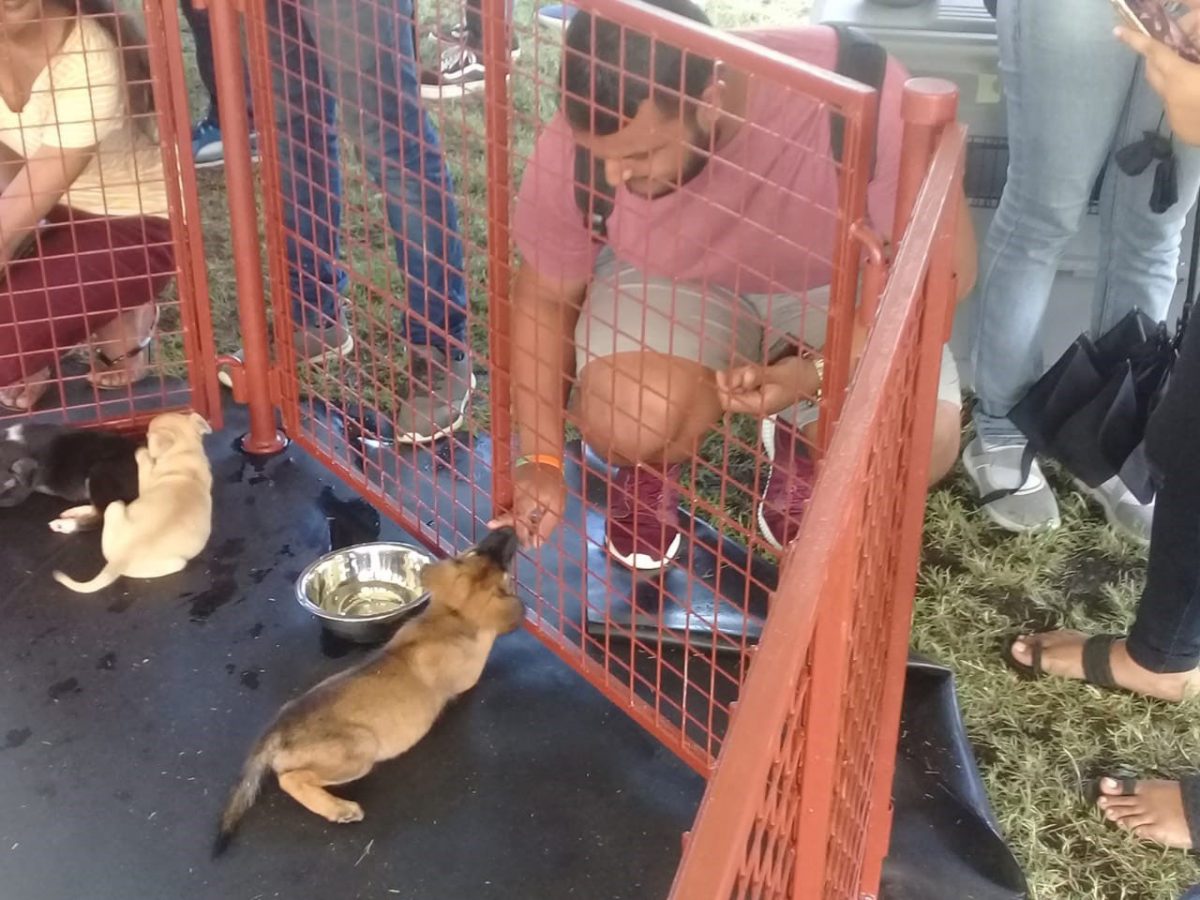In 2016, Ashley Khalil, was diagnosed with depression and she admits that she had a hard time coping.
“…If anyone knows about depression, you feel like you are having a bad day. You have no self-esteem. My energy levels were low. Food, it was not appetising. I just wanted to be alone,” Khalil recalled last week.
The current reigning national squash champion and also a badminton player, Khalil says that at the time she even “lost interest” in playing both sports. “I stopped playing completely. Also, I had trouble sleeping, and I was put on medication to help me sleep, and when I was diagnosed with depression, I was put on anti-depressants,” she added. Things started to change for Khalil, however, when ‘Trixi’ entered her life. “In 2017, I got a new puppy, and I named her ‘Trixi’. She was a lot to handle, but she was extremely loving, and brought new meaning to my life. She always seemed to know when you are having a bad day, and would come to sit beside you. The amount of kisses she gives, the positions she sleeps in, her facial expressions, and when I am driving, the way she crawls up and sits between my neck and the headrest as though she has to look at the road while I am driving. She is my very own co-pilot”, Khalil said, smiling as she recalls the moments.
It is with such moments in mind that local non-governmental organisation (NGO) Paws for a Cause-Guyana sought to help students of the University of Guyana (UG) battle school-related stress and depression last week when it took four puppies in its care to the Turkeyen Campus.
The goal of the local NGO, which is dedicated to the welfare of animals, was to allow students to pet and play their stress and away, even if the relief would be temporary. The site where the NGO set up shop was immediately identifiable by the cluster of people, mostly young women, flocking the barrier in which the puppies were housed.
Paws for a Cause-Guyana member Steffi De Nobrega, 25, who is in her final year as a biology major, said the idea to bring puppies for students to interact with came in light of her own experiences, and the fact that this current period is “crunch time”, during which students tend to be stressed. “I am a fourth-year biology student. Throughout the years it has been very stressful, and there is not much things that offer stress relief, so I found this would be useful,” DeNobrega, who has twelve dogs, and fifteen cats, explained.
She added that “persons are late with assignments, then you have exams the next day…deadlines. It is a lot of stress.” But even as students were focused on their exams, De Nobrega believed the initiative had the desired impact on some students. “A lot of people have been saying “I have exams in two minutes, but I do not want to go.” I heard a few of them saying that,” she noted.
Expanding on the initiative’s objective of addressing depression in students, Khalil, who is also a member of the NGO, said scientific research and her own experiences have confirmed that animals can help to address depression.
“Regardless of my mood, [Trixi] was always there, giving me love, even though she can’t say anything. Taking care of her reassured me that there was a lot of joy and happiness in this world and that I should be thankful for it,” Khalil said. “Six week after I got her, I was completely off of my sleeping pills, and about two months after, I came completely off of my anti-depressants. Now I have two dogs – Trixi and Cola – and they both have brought more love to me than I could have ever imagined. That shows that depression is no match for the unconditional love and joy that pets provide,” she added.
Commenting on the prevalence of stress and depression among students, De Nobrega called it the elephant in the room. “A lot of people feel it and do not want to talk about it, and they feel they are alone, but they are not. A lot of us are in the same boat with school, work, family, and if I found stress relief and comfort in my dogs, then I think other people can as well,” she said.






